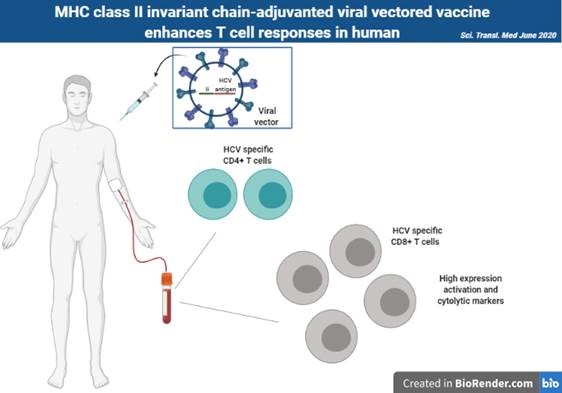
Novel adjuvant teases T cells to respond to HCV
Researchers from Italy, Denmark and the UK have devised a new vaccination strategy to tackle hepatitis C and boosting the required strong T cell response.
In Science Translational Medicine, the team headed by Ilaria Esposito from the University of Rome reports that their novel virally-administered adjuvant stimulated a strong antiviral response from immune cells. In addition, the vaccine proved being safe for mice during pre-clinical studies as well as for the 17 healthy human volunteers who participated in a Phase I trial. According to the researchers, the immunisation represents an important step in the creation of a – desperately needed – vaccine for hepatitis C, which continues to pose a major health burden around the world.
There are approximately 1.7 million new infections of hepatitis C worldwide each year, and some patients end up with deadly complications such as cirrhosis and liver cancer. The World Health Organization has made it a goal to substantially reduce hepatitis C infections by 2030 and eventually eliminate the disease, but these targets may not be achievable without a working vaccine. Previous research indicated that hepatitis C virus-(HCV)specific responses from T cells are critical to controlling infections, suggesting that any successful vaccine will need to stimulate immunity from this cell population.
The novel viral vector vaccine candidate encodes for a hepatitis C virus antigen fused to the major histocompatibility complex class II-associated invariant chain (Ii)a molecule that acts as an adjuvant by helping present foreign compounds to T cells. The vaccinations were well-tolerated by 17 healthy human volunteers, and the authors noted that the subjects’ T cells developed a stronger anti-hepatitis C immune response compared to cells from 19 volunteers who received an HCV vaccine that lacked the Ii adjuvant. Esposito et al. believe that incorporating Ii or similar adjuvants into vaccine designs could lead to stronger vaccines against hepatitis C and other infections.



 adobe.stock.com - ipopba
adobe.stock.com - ipopba BioDlink
BioDlink